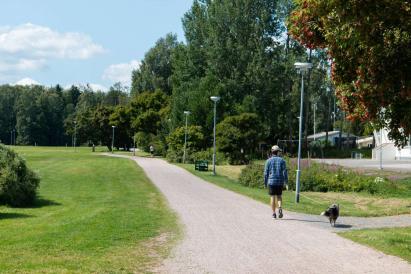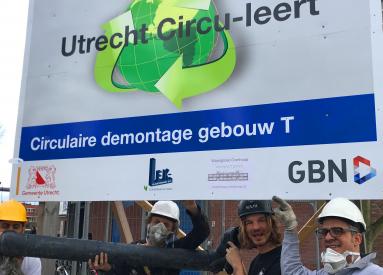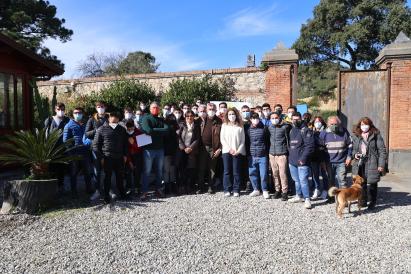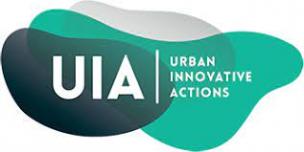-
-
Tool
1/1 - Making an Inventory of existing Funding & Resourcing structures
-
-
-
-
CoRE
AustriaViennaCentre of Refugee Empowerment
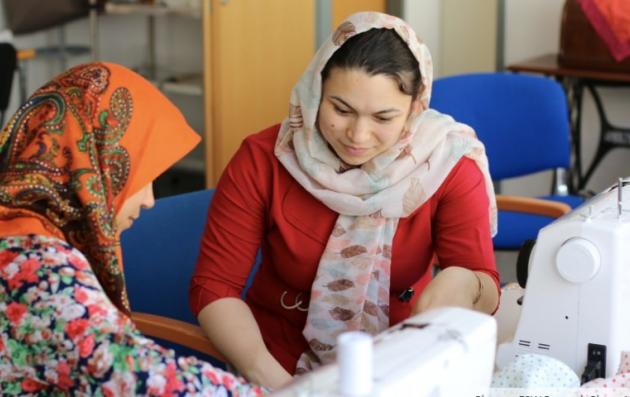
- Social cohesion
Copy linkFacebookXLinkedInEmail1 897 000Summary
As a response to the dramatic increase in the number of refugees arriving 2015 in Vienna posing huge challenges to social welfare and social housing systems and to the labour market, the CoRE project aimed at strengthening the local integration system and at developing innovative and inclusive integration measures which addressed the specific needs of asylum seekers and refugees. CoRE operated as hub and incubator for empowerment processes, jointly planned, utilised and operated by public institutions, NGOs, civil society initiatives, and refugees. By pooling resources and knowhow and by making refugees equal partners instead of passive beneficiaries, it helped to initiate smart transformation processes for the whole integration system, also aiming at changing public discourse. The physical infrastructure in the form of the CoRE Centre offered community spaces as well as service spaces.
One of the main achievements so far relates to the certification course for refugees with university diploma and experience in teaching in their home countries, developed and implemented together with the Educational Department of the University of Vienna. The most innovative dimensions is represented by the CoRE participatory approach. This included (self-)empowerment strategies for refugees, the active involvement of target groups, the prioritisation of bottom up processes vs top down, and the use of multi-level governance approach. Innovative is also the CORE center as a meeting point anThe innovative solution
Implementing the “integration from day one-approach” was a key objective of CoRE, based on the principles of the Vienna Integration Concept. Its five pillars are: Language (German and multilingualism); training (education and work); social integration (living together and participation); awareness work (objectivity, assessment and information), and Human Rights. The involvement and commitment of both institutional actors, stakeholders, NGOs, volunteers, but most importantly, targeted groups had been essential e.g. in fighting de-qualification or other integration barriers. The main solutions tests are: information modules, workshops, peer-mentoring (self-empowerment), competences assessment (participation in labour market), - measures to strengthen skills and qualifications (from support for medical doctors for being enabled to practice in Austria, certification courses for teachers and qualification training for accountants and care assistants to training in professional language skills or entrepreneurship training), - public events for bringing skills and talents of refugees to the curtain, training for volunteers, and the CORE centre as a meeting and contact point for organised initiatives.
A collaborative and participative work
Each project partner represented a key area in the field of integration (social welfare, education, entrepreneurship, labour market, etc.). Their commitment – irrespective of their share of the activities/budget – was one key success factor; same for their willingness to cooperate at eye level with civil society and targeted populations. Another key factor: strong support from local government, and involvement of scientific community.
The active involvement of refugees was in all phases of project implementation of utmost importance and the key to success. Pooling of resources of the project partners created a context that encouraged refugees to play an active role in their own integration process, and to be involved in the implementation of the project. Refugees acted as protagonists of the project, e.g. by holding workshops and lectures in schools.The impact and results
The framework conditions have changed substantially over the course of the project. At the very beginning, requirements directly related to the arrival of asylum seekers had been priority; later, integration issues on a more structural and emotional level came to the fore. At the political level, national elections brought restrictions in asylum law and tightened anti-immigration discourse, positioning the local government as an antipode. Project implementation was achieved through the capacity of all actors involved to collaborate across sectoral, disciplinary and institutional boundaries.
CoRE achieved a number of outputs that help making integration more inclusive, strengthening the integration from day one approach, and putting (self-) empowerment into the core of integration work. Concrete and measured results concern e.g. the number of refugees who benefitted from first-hand information, who ate able to stabilize their living and housing situation, who increased their professional skills and (also language) knowledge, attended a certification course, gained first working experiences, passed successfully exams, or who had been involved in activities promoting awareness of issues relating to flight and integration.Why this good practices should be transferred to other cities?
The situation of asylum seekers and refugees is requiring answers both at European, national and in particular local levels. The CoRE project is a complex project, focusing on various aspects of the integration process. As the project was characterized by the specific challenges in Vienna at that time, the project as a whole is not transferable one to one. However, the various activities of the project themselves are transferable – not only to other cities, but partly also to other target groups. But there are also more general lessons to learn from CoRE: The project’s main experience to share with other cities would be to dare to follow the concept of 'integration from day one', and to apply a bottom-up approach. Even if following a bottom-up-approach, with the active involvement of the target group and a high level of participation, might be challenging, the outcomes are worth it. The experiences also suggest not to focus only on results and outcomes of the project, but also on the process itself. Following a participative approach, the process of developing, modifying and testing new solutions together with the target group, is itself just as valuable as the outcomes. On the one hand, the collaborative work promotes a deeper understanding of the target group and on the other hand it changes the role of the target group, from being passive beneficiaries to active co-creators in their own integration process.
EmailChristoph.reinprecht@univie.ac.atRef nid17072 -
FED
SwedenGothenburgFossil Free Energy Districts - a piece of the puzzle for energy transition
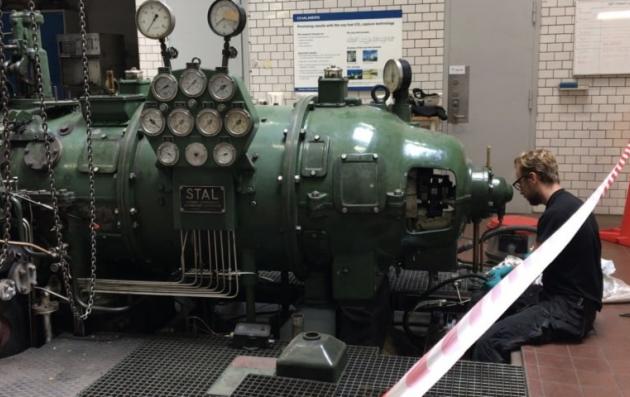
- Climate action
Copy linkFacebookXLinkedInEmail579 281Summary
Global warming has made the transition to renewable energy sources absolutely necessary and urgent. At the same time the power demand is increasing due to electrification of transport and industry and urbanisation, followed by grid constrains and risk for blackouts.
Local energy systems, digitally connected to and interacting with external, existing energy systems, have the potential to solve challenges connected to renewable systems and could thus be an important piece of tomorrows’ energy system puzzle. The Fossil-free Energy Districts project, FED, was an innovative initiative aiming to find modern solutions to global energy challenges and make it work.
FED has built up a local energy system, coupling three energy carriers in the same system: electricity, district heating and district cooling. All three are traded every hour, on the hour, at a digital marketplace, shaving power peaks and optimising the total energy consumption, in the local system. The system is able to provide the external grid with services for grid stability e.g. flexibility aggregation, reactive power and frequency control.The results show a 100% fossil-free energy district, where local waste heating and cooling can be utilised and with a potential for energy efficiency of up to 20%.
The innovative solution
FED has proven an innovative, digital solution to meet challenges in the energy transition. It has built up a local energy system, coupling three energy carriers in the same system: electricity, district heating and district cooling. All three are traded every hour at a digital marketplace, shaving power peaks and optimising the total energy consumption, in the local system. The system is able to provide the external grid with services for grid stability e.g. flexibility aggregation, reactive power and frequency control.
The results show a 100% fossil-free energy district, where local waste heating and cooling can be utilised and with a potential for energy efficiency up to 20%. After project end, the actors can offer knowledge and replication strategies to cities, or others, wishing to make use of local energy systems and smart, digital platforms for balancing and optimising local energy systems.A collaborative and participative work
The well-balanced partnership in FED was made up of actors from public sector, academia and ICT, real estate and energy business. Factors of success were the large elements of learning from each other and the joint development of new knowledge and new technology solutions. The real estate industry could not do this without the energy utility involved, nor vice versa. The research partners provided excellence e.g. regarding market design. Public sector partners added the municipal and governance dimension. The project was jointly developed in an environment, where most partners already were known to each other. Trust was already built among the partners and this, together with the local setting and use of native language, has been pointed out as keys to success.
The impact and results
The FED project has moved the frontline for what is possible on the area of local energy systems. Utilise sector coupling by combining three energy carriers, in the same system and enabling trade of all three of them on a digital platform is unique. FED has done what others just talk about and we have hands-on experience from e.g. connecting more than 50 market participants to one single system, handling large amount of complex data and developing an IoT platform with “smart agents” representing each market participant. A lot of time and effort has been put into identifying opportunities and barriers for local energy systems in real life. Legislation, business models, roles and governance are issues around which a great deal of knowledge has been built. Strategies for replication have been developed.
Why this Good Practice should be transferred to other cities?
Global warming has made a transition from fossil-based to renewable energy sources urgent, which brings about new challenges, e.g. supply fluctuations due to the weather dependencies and decreased frequency control. Power demand is increasing due to electrification of transport and industry. Strong urbanisation has in some cases lead to severe constrains in power grid, with power shortage and higher risk for blackouts. There is not a single solution to solve all these challenges but local energy systems, connected to and interacting with external, existing energy systems, could play an important role in facing the challenges. A digital solution, e.g. a system like the one developed in FED, is vital for balancing and optimizing the energy systems of tomorrow. The challenges of energy transition are a reality in several areas of Europe and initiatives and projects with smart grid and local energy systems can be found in many cities. We have implemented and demonstrated a system with high technical level and high degree of complexity. The system solution in itself is adaptable and can easily be adjusted to meet local challenges. The experience that the project parties have gained is very valuable for any other city that want to address the challenges of energy transition with the help of a local energy system.
Emailstina.rydberg@johannebergsciencepark.comRef nid17071 -
SALUS W SPACE
ItalyBolognaSustainable Accessible Livable Usable Social space for intercultural Wellbeing, Welfare and Welcoming
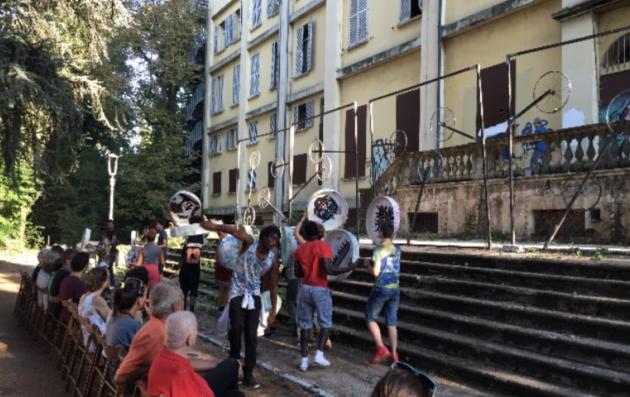
- Participative governance
- Social cohesion
Copy linkFacebookXLinkedInEmail388 367Summary
Salus Space will provide a multi-purpose living and working environment for 28 families up to half of whom will be migrants or refugees.
The project seeks to overcome the emergency approach in the refugees reception model and find new sustainable solutions, integrated into the social and economic framework. Furthermore it aims to prevent the conflicts and the perception of migrants and refugees as an economic and social burden, to fight the urban and social decay, caused by the economic crisis, to foster an open intercultural society, based on the generative welfare model and solidarity, by enhancing reciprocity between refugees and citizens and knowledge contamination and to help address demographic changes: ageing population, low birth rate, migration of young people.
The innovative solution
The project proposes to house 28 families of which roughly half will be from a migrant background in a purpose-built facility on the former Villa Salus hospital site on the periphery of the city The project will create a working community, with a generative welfare approach. The whole project is based on a collaborative approach between partners and once launched will involve collaborative management between the new community at Salus space and the City. The site will also play host to a Think Tank focusing on the inclusive economy.
A collaborative and participative work
The project has a wide partnership engaging many local actors. The partners range from specialist housing providers to a range of social cooperatives that work with specific groups – for example with migrant women. The work the city has done with the partnership is one of the most innovative aspects of the project. Together they have created a charter of values and a management plan for the site. The evolution of the project is a genuine co-creation.
The project has pioneered an approach to participative evaluation by training citizens in evaluation techniques. Citizen journalists, mostly from the nearby district of Savena have also been trained to write blogs and document the progress of the project.
The impact and results
The project launches for real in January 2021. The first four years have been taken up with the demolition of the original hospital and the construction of permanent living spaces, meeting spaces and three temporary structures. Up until now working on other sites, Salus Space has been able to provide training activities in theatre skills and horticulture for migrants. The partnership have also developed a collaborative management plan for the new facility and develop a charter of values with partners.
The new buildings at Salus Space will be officially opened in January 2021. Soon after the first cohort of tenants can move in for a 24-month residential period. The new site will host 28 families, up to half of whom will be from a migrant background, the rest with an Italian background. Activities on the site will include catering, horticulture, theatre, business creation as well as a think tank on social inclusion. The idea is to create a dynamic learning, working and living environment aimed at accelerating the integration process.
Why this good practices should be transferred to other cities?
The project presents an interesting approach to migrant integration by creating a co-living and working space on the urban fringe using a former derelict hospital site. Each family living in Salus Space will have their own living space but will also participate in a range of work, cultural and leisure activities on the site that will also be a welcoming space for visitors. Salus Space will be a living community.
For other European cities the project will be a live demonstration of how to organise new approaches to migrant integration. The governance and management arrangements are particularly interesting because the whole approach has been developed in a collaborative way with partners from the city including social cooperatives and specialist agencies. The project offers an opportunity to see a project in its early stages of implementation wrestling with real issues in real time.
Salus Space is also featuring in a Horizon 2020 project for innovative agriculture which is led by the University of Bologna and is part of a second H2020 bid.
Emailinti.bertocchi@bologna.itRef nid17070 -
5Bridges
FranceNantesCreating bridges between homeless and local communities

- Social cohesion
Copy linkFacebookXLinkedInEmail303 382SUMMARY
The more complex life course of socially disconnected people, with longer periods of homelessness and insecurity, with addictions and other psychiatric problems, require new types of response.
The main objective of the project is to develop solutions based on 5 bridges: employment, housing and health, living together and empowerment towards inclusion of people in a situation of exclusion.
5Bridges is creating a social urban equipment included in a sustainable, multifunctionnal and liveable area, for: jobs (neighbourhood-restaurant, urban farm, solidarity-shop); housing (temporarily housing as well as social housing); health (low-threshold care, self-esteem activities, gardening); inclusion (active participation alongside solidarity-based involvement of neighbours), empowerment through involvement.
A key element of the project is that before the delivery of the building, 5Bridges has implement small scale labs to test and develop new services, methodologies and approaches that will be integrated in this first social urban equipment of this kind in Europe.The experimentation of short term contracts is a real success, the first results are the following: out of 16 people affected, 14 people emerged positively to another type of contract. These positive exits took place after an average of 110 hours on the system.
The modern and innovative architecture is designed to allow everyone to feel confortable on the site and thus promote the mix of uses and public.
The innovative solution
Homelessness is one of the key challenges for cities in their fight against urban poverty. Nantes’ global aim is to be a green, innovative and liveable city FOR ALL. Social cohesion is at the heart of all its public policies. Today, the more complex way of living of socially disconnected people - including longer periods of homelessness and insecurity - requires new types of answers. Meanwhile, socially excluded groups feel socially stigmatised due to their difference.
5Bridges project experiment innovative solutions to tackle urban poverty: building an innovative urban equipment, a one-stop shop for different social groups where they can meet : a restaurant, an urban farm, a solidarity store, as well as solidarity-based housing, low threshold health care, and social services opened 24/24 and 7/7; developing an innovative approach: placing the user at the heart of the project's choices and including neighbours to facilitate the integrationA collaborative and participative work
The partnership is composed of 6 partners, each of them intervening in their own field of expertise. This partnership between public, private and associative actors has made it possible to carry out this innovative project (Ville de Nantes, Nantes Metropole - Organised Agglomeration, Association Les Eaux Vives – NGO, CDC Habitat - Public/Private Company, Société d’Aménagement de la metropole ouest atlantique (Samoa) - Public/Private Company, Association Emmaus 44 - NGO)
The project is planning to impact 2000 persons per year : homeless, badly housed or disconnected people, in Nantes and surroundings. During the years of experimentation, the target groups have been involved in the choices concerning the equipment.
The equipment now called “5Bridges solidarity village” will be managed by a NGO created by the occupants of the site.The impact and results
The implementation phase of the project was characterised by two main activities: the construction of the equipment; and setting up small-scale labs to test and optimise the different designed answers that will be integrated in this social urban equipment.
The project had to face many hazards, particularly related to the construction of the building. The partnership's human resources and tools made it possible to meet the challenges related to financial or scheduling risks, sometimes by imagining more interesting solutions than the original proposal.
Results have been achieved regarding: empowerment and social inclusion through sustained active involvement of users; economic inclusion of users in small scale working labs, providing a work experience and short working contracts; sustainable housing solutions and satisfactory appropriation of mixed social housing; increased expertise of staff and users about support, based on the peer interventions of social workers, volunteers and users.Why this good practices should be transferred to other cities?
The European Observatory on Homelessness reported in 2014, that homelessness is a growing issue in Europe. FEANTSEA (2010) stressed that the predominant model is that local authorities have the main responsibility for enabling and steering such services and NGOs are the main service providers, financed to a large extent by municipalities.”
Here are some targeted local issues:- 2337 persons have never been accommodated in 2014 in Nantes
- Lack of coordinated social support services 24/24 and 7/7
- Existing structures do not always properly match social/healthcare/housing offers with the users' needs, and their geographic dispersal creates an “organised wandering” throughout the city.
5Bridges project can be duplicated by other European cities as:
- It provides a solution to a situation they also face: mismatch between the offer (outdated accommodation, dispatched social services, lack of integrated answers) and the growing and changing needs, which require a integrated and comprehensive answer to homelessness.
- It relies on a mix of competences and expertise (social work, health care, citizen participation, urban planning) and a portfolio of local stakeholders (NGOs, health services, social housing promoters…) that can be activated by all European cities.
Many documents and reports have been produced during the implementation of the 5Bridges project and can be provide to other cities willing to duplicate the project.
Emailclarie.moureau@mairie-nantes.frRef nid17069 -
U-RLP
NetherlandsUtrechtUtrecht Refugee Launch Pad
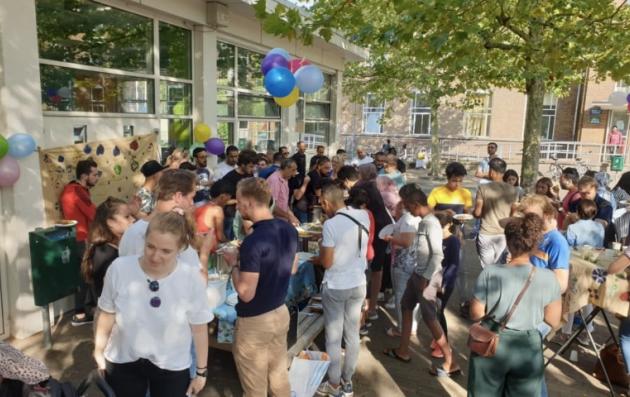
- Social cohesion
- Participative governance
Copy linkFacebookXLinkedInEmail360 000Summary
The increase in the arrival of refugees in 2015-16 and the rise in hostile attitudes towards them required more innovative and effective reception strategies. The aim was to make better use of the time that asylum seekers spent in reception shelters and that these centres would also provide opportunities for neighbors and local community, allowing to counteract negative narratives.
The project housed asylum seekers and refugees in the same complex as local young people. It used co-learning, inviting neighbours to take courses together and engage in social activities in a shared social space. The project aimed to engage with concerns from receiving communities and activate asylum seekers ‘from day one’ by providing opportunities for participants to develop their skills, to enhance wellbeing and improve inclusion and community cohesion in the neighbourhood.
Utrecht's new Integration Plan has been inspired by Plan Einstein and any new asylum shelter to be opened in Utrecht will have to follow the project concept.
Transforming an Emergency Shelter into a vibrant and innovative setting of a shared living, learning and working space that connects from day one refugees, neighbours and the local entrepreneurial ecosystem.
The innovative solution
The ultimate place where asylum seekers will settle is uncertain and integration activities only start when asylum is granted. Emergency shelters are often placed in deprived neighbourhoods, where residents themselves face social and economic problems, facilitating hostile attitudes towards refugees. The challenge is to promote effective inclusion starting immediately upon refugee’s arrival, regardless of the country they end up living in, and promoting social acceptance of refugees in local communities.
Main solutions implemented: offering a combined community housing and shelter concept, with a wide range of social and cultural activities connecting local citizens and asylum seekers, focusing on common goals and the needs of the neighbourhood; providing International Entrepreneurship Training, English courses and peer to peer coaching by successful social entrepreneurs and corporations; offering an Incubator space for new business startups; reframing refugees’ broken narratives to more positive and hopeful narratives, whatever the outcome of their application.A collaborative and participative work
The project integrates social, legal, academic, psychological, economic and political dimensions. That’s why it has combined the expertise of the City and the Dutch Refugee Council on the reception of asylum seekers, together with NGOs and social enterprises and research and educational institutions to provide evidence-based to such an innovative project.
The most effective participation processes have been those that have encouraged cooperation between the different target groups (asylum seekers, youngsters and local neighbours) based on equality, common objectives and interests and the recognition and contribution of the different skills and talents, that has helped to foster a common and shared sense of belonging.
The impact and results
The project management adopted a horizontal network arrangement based on a principle of cooperation and equality. This approach together with some delays, unexpected changes and the complex collaboration with the central government have posed some challenges that have been tackled from the capacity for adaptation and flexibility of the team and the creation of new roles and spaces for coordination between all the partners, that continue working together in the new phase of the project.
The external evaluators identified some relevant results: the Project had positive impact in generating good relations in the neighbourhood; participants were able to use Plan Einstein as a helpful means of starting to make the transition to the labour market by increasing their skills and networking; residents in both the Shelter and neighbourhood experienced greater levels of mental well-being by improving psychological health and encouraging more social connection and productive time-use.
Why this good practices should be transferred to other cities?
The challenge of reception and inclusion of asylum seekers is shared by many European countries. The rise of populist discourses and xenophobic narratives threatens fundamental values and reinforces social polarisation. Cities are key actors in providing innovative responses in favour of inclusion, human rights and coexistence.
The project has shown that promoting inclusion from day one by connecting asylum seekers with neighbours, sharing spaces, activities, training and projects to address the needs of the neighbourhood can have positive impacts for all.
The project is relevant to asylum seekers who spend months in reception centres, being able to use this time to develop new skills, participate in activities and build social networks. But it is also relevant for local neighbours who can take advantage of new services and training, and for the city as a whole which can better take the opportunities posed by diversity and avoid the costs linked to segregation, exclusion or racism.
The project's approach is very transferable, because despite the differences in context between cities and countries, what it does is adapt the principles of integration or interculturality to the first phase of reception, by building a diverse network of local actors who collaborate for a common goal.Emaili.antonius@utrecht.nlRef nid17068



